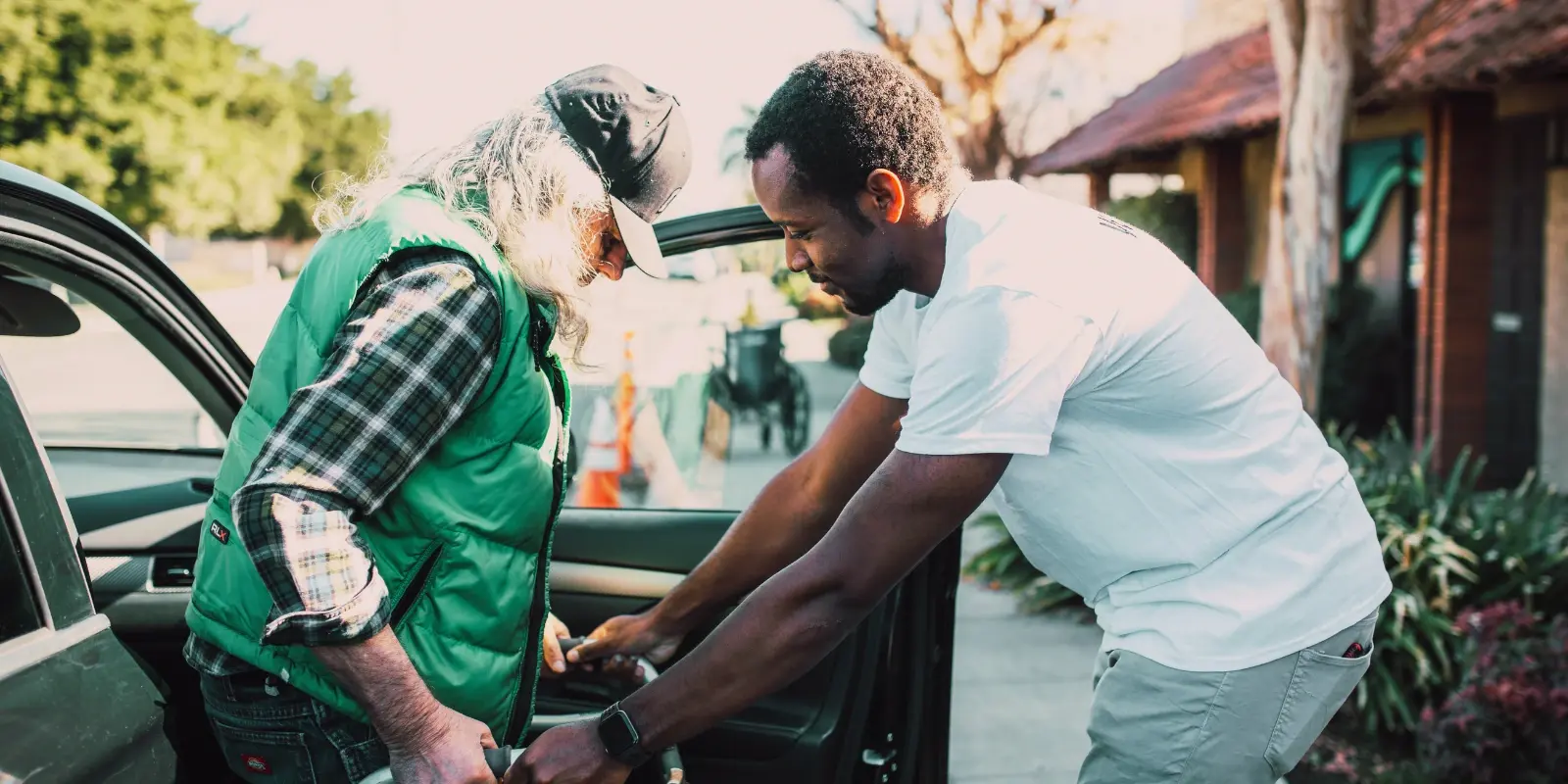How To Prevent Falls in Aged Care

Tags:
Aged CareSeptember 28, 2024
Are you concerned about the risk of falls for your elderly loved one?
That’s a healthy concern to have, because as people age, the likelihood of serious injuries from falls increases significantly. Understanding the risks that contribute to falls can help us to prevent them and ensure the safety and well-being of our elderly loved ones.
Here, we will explore some of the most effective strategies to reduce or eliminate these risks, helping your elderly loved one to maintain their health, safety, and quality of life as they get older.
Understanding The Risk Factors for Falls
When caring for an elderly family members or loved ones, being aware of what increases their risk of falling is crucial. Here’s what you need to know about the risk factors and why addressing them can significantly help in preventing falls.
What are risk factors?
Risk factors are conditions or attributes that increase the risk of falling. These can be personal (intrinsic) like age, medication, or health conditions, or environmental (extrinsic) such as hazards around the home or community. The more risk factors your loved one has, the greater their chance of falling.
Why are risk factors important?
Recognising and managing these risk factors is vital because they directly influence the likelihood of falls. Employing a ‘multi-factorial’ approach — addressing several risk factors at once — is often necessary for the most effective fall prevention. While some risk factors, like age, can’t be changed, many others, such as muscle strength or home safety, can be improved to significantly reduce the risk of falls for your loved one.
Common risk factors for falls
There are many risk factors linked to falls, but some of the most critical and modifiable ones include:
- Fear of falling: This can limit activity, reducing physical fitness and increasing falls risk.
- Mobility limitations: Difficulty with walking or daily activities can increase the risk of falls.
- Impaired balance and gait: Challenges with walking patterns or stability.
- Visual impairment: Poor vision can prevent your loved one from seeing obstacles.
- Reduced muscle strength: Weaker muscles, especially in the lower limbs, can affect stability.
- Medications: Certain medications, including benzodiazepines, antidepressants, and others affecting the mind or mood, can increase fall risk due to side effects like drowsiness or dizziness.
Healthcare professionals can use screening tools to identify these risks in your loved one and recommend appropriate interventions. Remember, identifying risk factors is only helpful if followed by action to address them!
Creating a safe environment and ensuring regular medical check-ups to review health conditions and medications can be a proactive way to safeguard your loved one from falls. If you need guidance or more information on creating a fall-preventive environment for your loved one, Care For Family is here to help. Reach out to us, and let's ensure their safety together.

How to Prevent Falls in Aged Care: Practical Tips and Measures
Reducing fall risks in elderly people – whether they’re being cared for in the home or in an aged care facility such as a nursing home – involves a good blend of physical activities and environmental modifications. These can be incorporated by you and other family members, or your loved one’s aged care team (if they reside in an aged care facility, for example):
Exercise Programs: Implementing balance and strength exercises, like Tai Chi or gentle yoga, can significantly improve stability and decrease the likelihood of falls. Encouraging regular physical activity helps seniors maintain muscle strength and coordination, which are crucial for stability.
Home Safety Modifications: Adjusting the living environment is key to fall prevention. This includes:
- Removing tripping hazards such as loose electrical cords, rugs and clutter.
- Installing grab bars in bathrooms and railings in hallways.
- Ensuring adequate lighting throughout the living area.
- Using non-slip mats in bathrooms and kitchens.
- Rearranging furniture to create clear pathways.
Healthcare providers should also regularly review and possibly adjust medications that increase fall risks. Additionally, ensuring regular vision and hearing tests can help older adults avoid falls caused by sensory impairments.
Educational Measures: Educating seniors and their caregivers about the risks and prevention strategies is also really important. This includes teaching techniques for safely getting up from a chair or bed, proper footwear selection, and the importance of slow movements to prevent dizziness.

The Benefits of Falls Prevention for Your Loved One
We have all heard horror stories of an elderly person taking a fall, ending up in hospital with a hip fracture, and never making a full recovery. Unfortunately, falls pose a huge threat to the well-being of our ageing loved ones, and can even result in death. But don’t worry, having effective fall prevention strategies can drastically reduce this risk, and even enhance the quality of life for seniors by maintaining their independence.
The measures we’ve outlined above will not only help prevent physical harm but also help alleviate the fear of falling, which can limit your loved one’s activity and lead to social isolation – which is another huge risk for seniors. A proactive approach to falls prevention encourages a more active, fulfilling lifestyle and provides peace of mind for you and your elderly loved one.
Accessing Falls Prevention Support
Accessing the right support for falls prevention is straightforward with resources like the Carer Gateway and aged care assessment teams (contact My Aged Care on 1800 200 422 to arrange) that offer personalised guidance. These services help tailor prevention plans to meet the specific needs of your loved one, enhancing their safety and independence. If you’re looking for practical ways to enhance your loved one's living environment or to integrate effective falls prevention strategies, reach out to Care For Family.
Our expertise includes incorporating the most effective falls prevention methods tailored to seniors' needs. To learn more about our comprehensive care options, request a callback.
